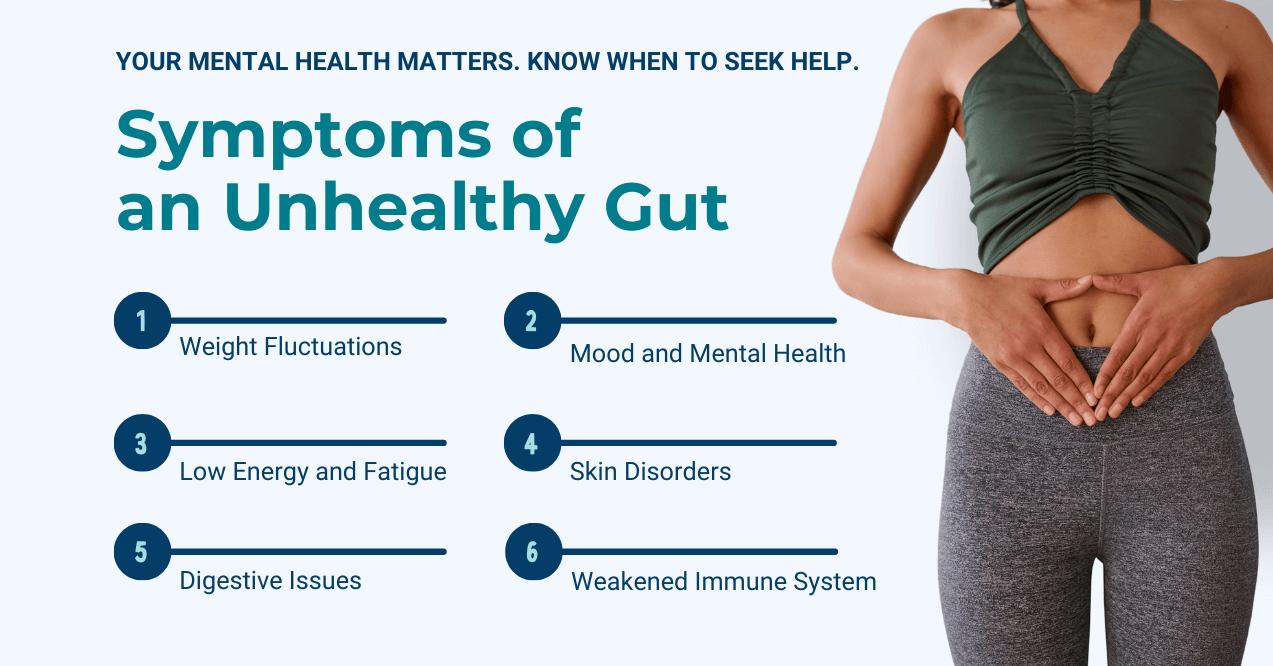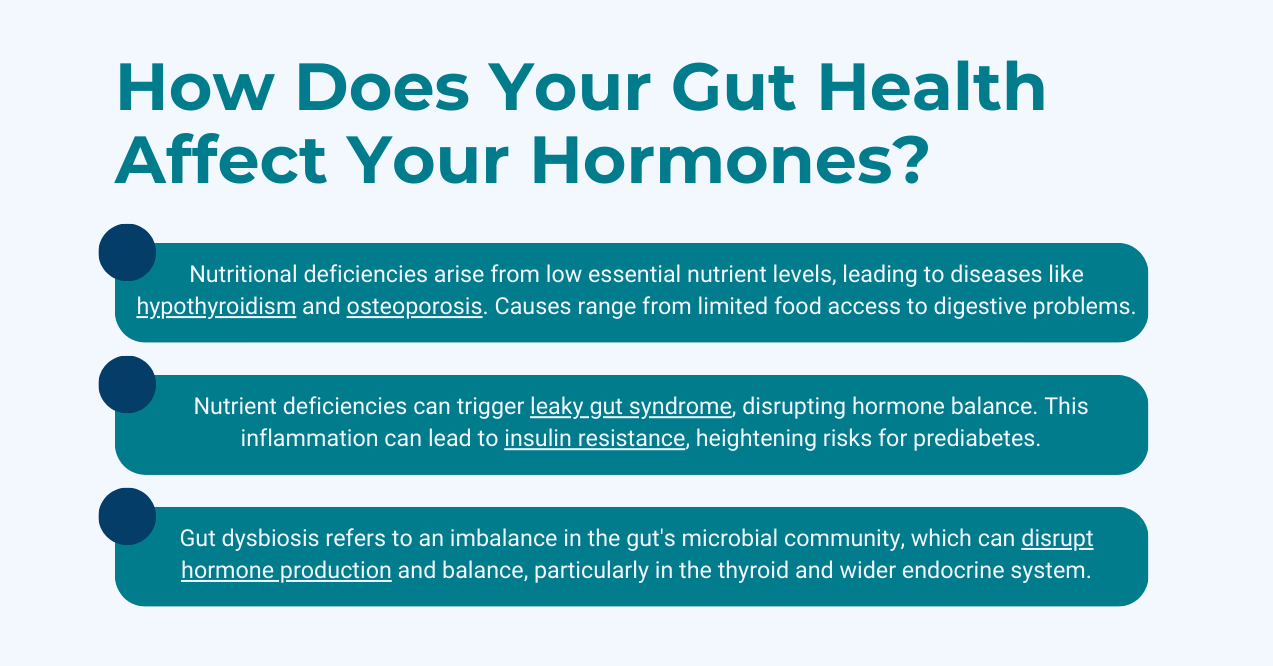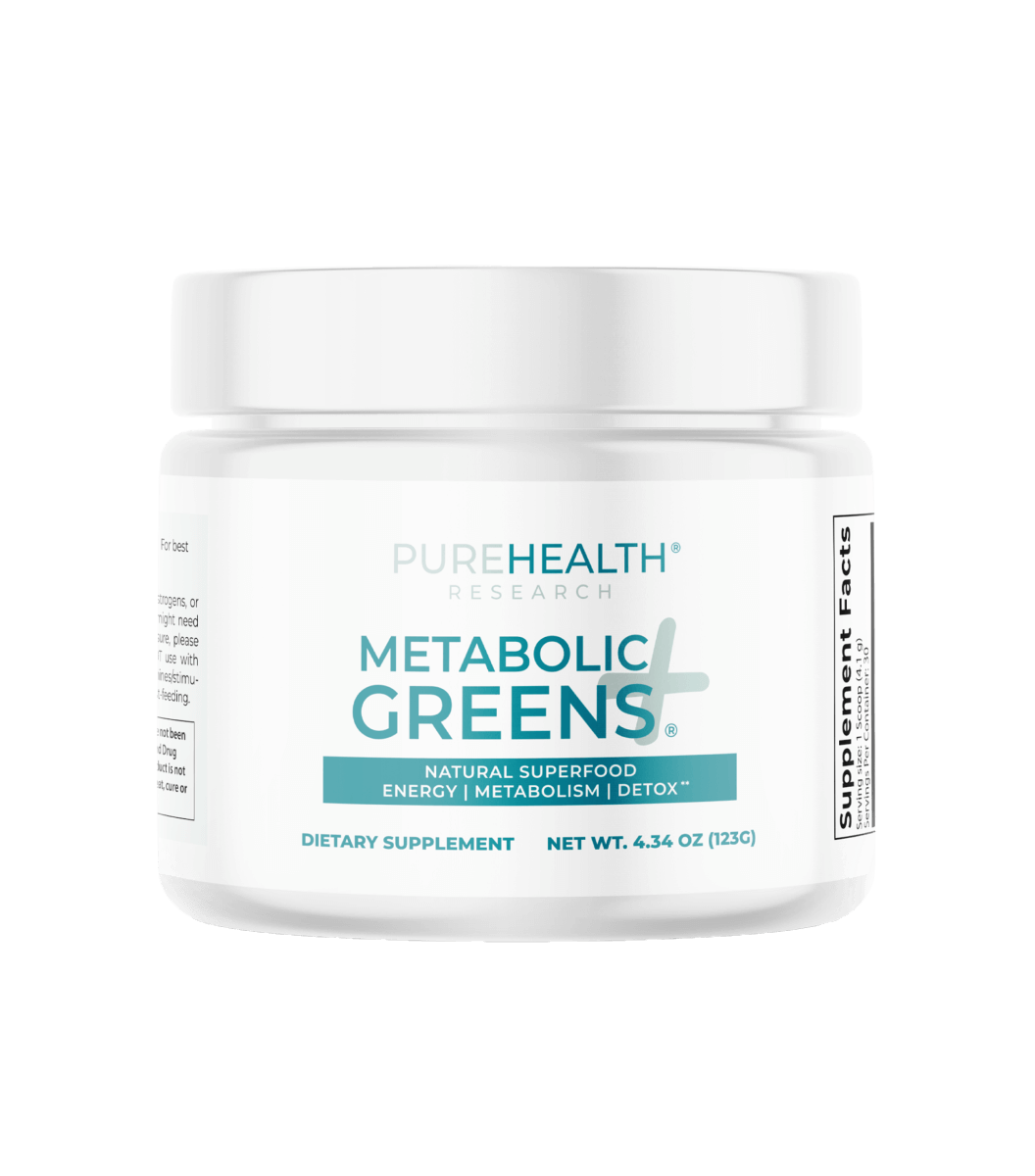How Does Your Gut Health Affect Your Hormones?
Did you know your gut health and hormones are tightly correlated? Discover how the gut's microbiota influences hormone balance and various bodily functions.


The delicate link between your gut health and hormones is genuinely remarkable. Aside from its job in digestion, the gut, deemed the body’s second brain, has an astounding impact on your hormonal balance, radiating its influence throughout your entire existence. Imagine a bustling metropolis where hormones are messengers, and your gut is the central location, organizing a captivating symphony of interaction.
Hormones govern the rhythm of your bodily functions, from serotonin, the mood regulator, to insulin, the blood sugar conductor, and everything in between. What’s most impressive is that your gut, which is lined with a sophisticated web of microorganisms known as the gut microbiota, serves as the conductor’s baton. Research concerning the correlation between this microbial population and the subtle symphony of hormones is currently ongoing, and there’s real excitement about how much we can unearth.
In truth, the ramifications of a microbiota imbalance in your gastrointestinal tract are mind-boggling. It can cause hormonal havoc, appearing as mood swings, weight shifts, energy slumps, and even skin abnormalities. Let’s explore this complex relationship, looking at how the things you eat, your everyday behaviors, and your stress levels may all affect this delicate equilibrium. Buckle up for an eye-opening journey into the fascinating gut health and hormone connection.
Causes and Symptoms of an Unhealthy Gut
Your gut, a near-perfect community of microorganisms and cells, is an essential component of your general health. When this delicate equilibrium is disturbed, an unhealthy gut can trigger a chain reaction of adverse effects on both your mind and body. Looking into the causes and symptoms of a faulty gut reveals a web of complications that extends far beyond digestive distress.
For instance, the gut-brain relationship is strong, and persistent stress can negatively impact your gut health. Living under constant tension causes the release of hormones that affect digestion and the makeup of gut bacteria. A persistent lack of sleep can also disrupt gut health by negatively interfering with bacteria balance and aggravating inflammation.

Some common signs of an unhealthy gut are:
- Weight Fluctuations – An unbalanced gut microbiota can impact weight management and metabolism. It can make it more challenging to lose weight or even cause weight gain.
- Weariness and Low Energy – A dysfunctional gut can limit nutrient absorption. As a result, you can experience chronic fatigue and low energy levels despite getting enough rest.
- Digestive Problems – Bloating, gas, diarrhea, constipation, and heartburn are all symptoms of an unhealthy stomach. These ailments frequently imply a bacterial imbalance in the gut or poor digestion.
- Mood Changes and Mental Health Problems – The gut-brain axis connects gut health to mental wellness. A sick gut can lead to mood problems, including anxiety, sadness, and cognitive deterioration.
- Skin Disorders – An unhealthy stomach can exacerbate skin issues such as acne, eczema, and psoriasis. Inflammation in the gastrointestinal tract can lead to breakouts and blemishes on your skin.
- Weakened Immune System – Your stomach and intestines host a significant percentage of the immune system. An unhealthy gut can, therefore, impair immune function, leaving you vulnerable to infections.
Needless to say, you need to prioritize proper practices for gut health and hormone balance. Consuming abundant processed foods and sugary treats while failing to include enough fiber-rich foods may also disrupt the delicate equilibrium of your gut microbiota. These vital microorganisms thrive on dietary fibers found in vegetables, fruits, and whole grains. Antibiotics and other drugs can clear out beneficial germs in the gut, causing trouble down the line.
Correlation Between Gut Health and Hormones
The interesting connection between gut health and hormones shows a dynamic relationship that influences several elements of our well-being. The gut is a bustling cluster of billions of microbes that influence human health far beyond its primary role of digesting ingested food. This teeming microbial ecosystem is inextricably linked to the complex interplay of hormones that oversee everything from mood to digestion.
For instance, the gut is the primary producer of serotonin, a neurotransmitter associated with mood. A disturbed gut microbiome might impair serotonin synthesis, possibly resulting in mood disorders such as anxiety and depression. Likewise, the gut has an enormous effect on insulin, which is responsible for controlling blood sugar levels. An unhealthy stomach can reduce sensitivity to this hormone, resulting in adverse health conditions such as insulin resistance and type 2 diabetes.
According to research, gut flora can alter estrogen levels, influencing menstrual cycles and, possibly, menopause. Additionally, long-term inflammation, often linked to an unhealthy gut, can disrupt the hormonal equilibrium. As a result, it can lead to a range of health concerns, including hormonal acne, irregular menstrual cycles, and potential fertility complications.
Emerging evidence indicates that the state of the gut microbiome can influence how the body perceives and manages stress as well. Surprisingly, the gut-hormone bond is bidirectional. Cortisol, also known as the stress hormone, can affect the gut microbiota composition. As a result, imbalance in nervous system can disrupt the microbial balance, potentially causing digestive problems and aggravating hormone abnormalities.
The ongoing interaction between gut health and hormones underscores the holistic nature of the human body’s general well-being. By recognizing and addressing this relationship, you can potentially take steps to support both their gut health and hormonal balance, leading to improved resilience and better overall health outcomes.
How Gut Health Issues Lead to Hormone Imbalances?

As we’ve already mentioned, the microbiome in the gut has unparalleled influence over hormonal production. Neglecting its health can lead to noticeable problems, including:
Nutrient Deficiencies
According to the National Institute of Health, nutritional deficiency refers to significantly low levels of one or more essential nutrients. This issue can hinder normal bodily functions and increase the risk of conditions like cancer, heart disease, and diabetes. You could develop nutritional deficiencies for multiple reasons, with the most prevalent being the lack of food availability. In addition, other factors, such as impaired digestion and intestinal malabsorption, can also contribute to the problem.
When the body lacks essential nutrients, it can disrupt the production and regulation of the endocrine system, leading to imbalances. Hormones are chemical messengers that regulate various processes in your body, including metabolism, growth, mood, and reproductive functions. Iodine, for example, is crucial for synthesizing thyroid hormones (T3 and T4), which play a key role in regulating metabolism. A deficiency in iodine can lead to conditions like hypothyroidism or goiter.
Vitamin D is essential for calcium absorption and bone health. It also plays a role in regulating various hormones, including parathyroid hormone (PTH) and insulin. Deficiency in vitamin D can increase the risk of osteoporosis and diabetes. Zinc, on the other hand, is involved in the synthesis of various hormones, including those related to reproductive health. A deficiency in zinc can disrupt the balance of testosterone, estrogen, and progesterone, potentially impacting fertility and reproductive function.
B vitamins, such as B6, B9 (folate), and B12, are essential for nervous system function and synthesizing neurotransmitters and hormones. Deficiencies in these vitamins can influence cortisol regulation and mood. Magnesium is vital for insulin sensitivity and glucose metabolism. A deficiency potentially contributes to insulin resistance and diabetes.
Leaky Gut
As if working in synergy, deficiencies in nutrients such as omega-3, vitamin B12, and zinc lead to inflammation in the gut. Prolonged inflammation may result in leaky gut syndrome (LGS), which is a condition that weakens the intestinal wall and causes it to become more permeable. A structurally susceptible intestine freely allows bacteria and toxins to enter the bloodstream, potentially triggering an immune response.
When your immune system is activated, the body produces cytokines, which are cell-signaling proteins that help to resolve the issue. Unfortunately, some of these cell-signaling proteins interfere with the production and release of some hormones. Of course, a negative impact on hormonal pathways results in hormonal imbalances.
Chronic inflammation from a leaky gut can lead to insulin resistance, which is a concerning health issue. Insulin is a crucial hormone, and if resistance is not addressed promptly, it can result in hyperglycemia, which can eventually lead to prediabetes and type 2 diabetes. Diabetes is a disease that can have a serious impact on the population, particularly on older individuals. If left unmanaged, it can rapidly lead to kidney failure and premature death.
Gut Dysbiosis
The lack of diversity within the microbiome community in the gut is referred to in the medical field as dysbiosis. If you’ve been keeping up, the one thing you must know thus far is that gut dysbiosis and hormonal imbalance are seemingly inseparable. Each condition exacerbates the other in a vicious cycle, making matters worse for the individual in question. That’s just how strong the gut health and hormone connection is.
According to a 2018 study, there is a direct relationship between bacterial overgrowth in the small intestine and impaired thyroid gland function. The thyroid gland is responsible for producing three hormones, as mentioned earlier. However, small intestine bacterial overgrowth can have harmful effects on the gland’s capability to produce and release these hormones.
The thyroid plays a significant role in the grand scheme of things within the endocrine system. In addition to the hormones it secretes, the gland also works in synergy with the parathyroid, adrenal, and pituitary glands. A defective thyroid gland will, therefore, affect the respective functions of its counterpart glands and the individual hormones they produce. If left untreated, this could cause a full-blown gut health and hormone imbalance problem.
How to Get Your Gut Health and Hormones in Order?
Thus far, it must be crystal clear that to keep your hormones in top shape, you must first take care of the underlying problem — the gut. Luckily, at PureHealth Research, we’ve created an expert-approved supplement, recommended by Dr. Holly Lucille, ND to help you support gut health and hormonal balance. Among multiple other benefits, Metabolic Greens+ comes packed with 10 digestive probiotics:
- Lactobacillus Acidophilus
- Lactobacillus Salivarius
- Lactobacillus Plantarum
- Lactobacillus Rhamnosus
- Bifidobacterium Lactis
- Bifidobacterium Bifidum
- Lactobacillus Fermentum
- Lactobacillus Reuteri
- Bifidobacterium Longum
- Xylooliogosaccharide
When consumed in adequate amounts, these probiotics contribute to a balanced gut microbiome, which can have far-reaching effects beyond digestion. In addition, these beneficial bacteria have been linked to potential positive effects on hormonal balance through their influence on the gut-brain axis. Probiotic consumption through supplements can also potentially help modulate the immune system, which in turn can impact the endocrine system and hormonal regulation.
On top of its high probiotic content, Metabolic Greens+ holds a carefully crafted mix of 34 premium-quality ingredients classified into five separate blends. The Reds Blend, the Metabolic Blend, the Enzyme Blend, the Probiotic Blend, and the Greens Blend help balance your digestion with the easy-to-absorb vital nutrients that could be difficult to get from food.
As a product of the synergy from its natural ingredients, Metabolic Greens+ regulates blood sugar levels, promotes nutrient absorption, and reduces bloating, among other benefits. The supplement also helps boost mood and well-being, alleviating stress-induced hormonal imbalances. Make your order from PureHealth Research and wave your gut health and hormonal problems goodbye. This is how to get your gut health and hormones in order. To see our other best supplements for gut health and digestion, click here.
Final Thoughts
In the fascinating fabric of our biology, the relationship between the stomach and hormones surfaces as a major revelation. This delicate interplay impacts our well-being in unexpected ways, from mood to metabolism. Nurturing your gut health is not just about digestion but also about creating a seamless orchestra of hormones that move through your system.
As science uncovers the mysteries of this mutually beneficial relationship, we find ourselves at a fork in the road toward empowerment. By making mindful nutritional choices, managing stress, and prioritizing holistic well-being, we can unlock the door to balanced hormones and vibrant vitality. This powerful path is guided by the wisdom of our gut’s silent impact.
The gut, often referred to as the body’s second brain, plays a significant role in maintaining hormonal balance. This intricate relationship is known as the gut health and hormone connection. The gut, lined with a complex network of microorganisms called the gut microbiota, influences hormonal balance throughout the body. This connection impacts various aspects of our well-being, from mood regulation to digestion.
An imbalance in the gut microbiota, or gut dysbiosis, can lead to a series of hormonal disruptions. This is often referred to as gut health and hormone imbalance. For instance, a disturbed gut can impair the production of serotonin, affecting mood, or influence insulin sensitivity, leading to conditions like insulin resistance. Additionally, gut flora can alter estrogen levels, potentially affecting menstrual cycles and menopause.
Symptoms of an unhealthy gut include weight fluctuations, fatigue, digestive problems, mood changes, skin disorders, and a weakened immune system. These symptoms can be linked to hormonal imbalances, such as mood swings, energy slumps, and skin abnormalities, showcasing the profound gut health and hormone connection.
Prioritizing a balanced diet is crucial for maintaining gut health and hormone balance. Consuming excessive processed foods and sugary treats can disrupt the gut microbiota. On the other hand, dietary fibers found in vegetables, fruits, and whole grains support these vital microorganisms. Additionally, certain supplements for gut health and digestion, like Metabolic Greens+ from PureHealth Research, are formulated to support gut health and hormonal balance.
To ensure both gut health and hormones are in order, one should prioritize proper dietary practices, manage stress, and consider supplements that support the gut microbiome. Products like Metabolic Greens+ are designed to balance the gut microbiome, which can influence the gut-brain axis and, in turn, hormonal balance. By addressing the gut health and hormone connection, individuals can potentially improve their overall health outcomes.
Sign up for our Healthy Living newsletter!
Advertisement. This site offers health, wellness, fitness and nutritional information and is designed for educational purposes only. You should not rely on this information as a substitute for, nor does it replace, professional medical advice, diagnosis, or treatment. If you have any concerns or questions about your health, you should always consult with a physician or other health-care professional. Do not disregard, avoid or delay obtaining medical or health related advice from your health-care professional because of something you may have read on this site. The use of any information provided on this site is solely at your own risk.












